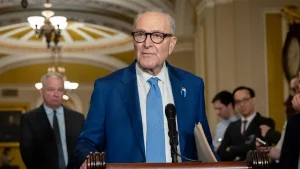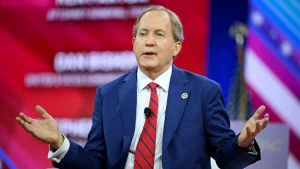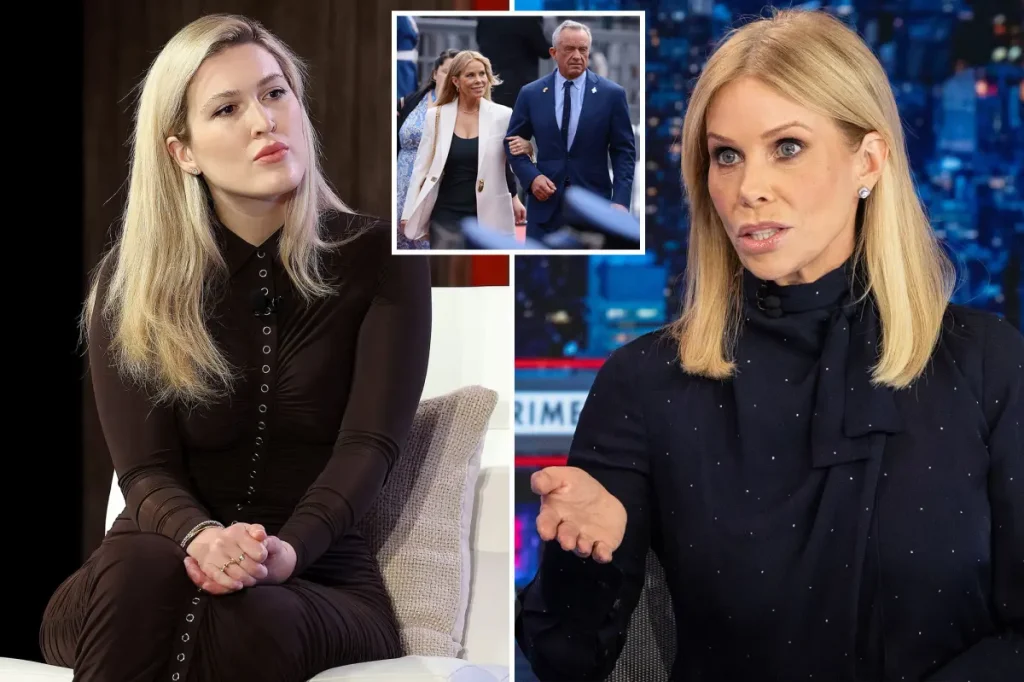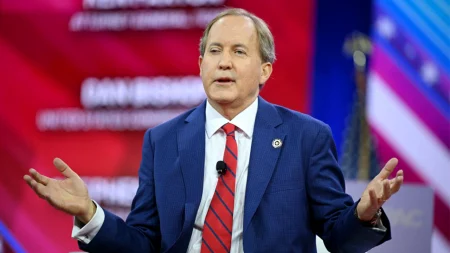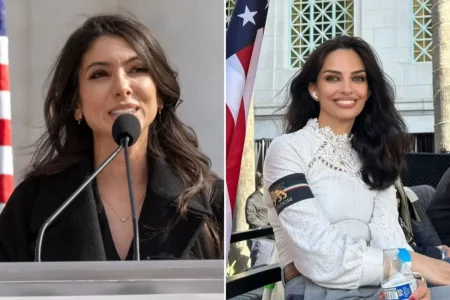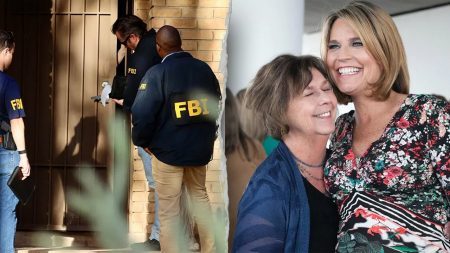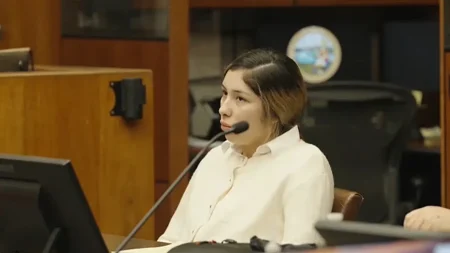Cheryl Hines Speaks Out About Standing By Robert F. Kennedy Jr. During Sexting Scandal
In a recent interview on “The Katie Miller Podcast,” Cheryl Hines, actress and wife of Secretary of Health Robert F. Kennedy Jr., opened up about her decision to support her husband during his controversial texting scandal with former New York Magazine writer Olivia Nuzzi. With remarkable candor, Hines explained her thought process, saying, “I think you always have to consider the source, right? So that’s where I start.” This pointed comment about Nuzzi, who ultimately lost both her job and fiancé as a result of the scandal, reveals the calculated approach Hines took when evaluating the situation. She went on to explain that after considering the source, it simply “ends with a conversation with Bobby,” suggesting a level of trust and communication between the couple that has sustained their 11-year marriage despite public scrutiny.
The “Curb Your Enthusiasm” star framed the scandal within the larger context of Kennedy’s presidential campaign, describing the preceding year-and-a-half as “exhausting” and filled with “headlines and rumors and articles and chaos.” From her perspective, the texting scandal with Nuzzi—which both parties have confirmed never escalated beyond digital communication—was merely “more chaos and more rumors” in an already tumultuous political journey. Hines acknowledged the emotional toll the situation took on her, simply stating, “it was a lot,” giving listeners a glimpse into the personal struggle behind her composed public persona. This framing allows us to understand how Hines might have compartmentalized the scandal as just another challenge within the already difficult landscape of political campaigning.
Hines didn’t shy away from questioning Nuzzi’s motivations, particularly regarding the writer’s decision to include the scandal in an upcoming memoir expected later this year. “I don’t know this person. Don’t know their intentions,” Hines remarked, before adding suggestively, “I could guess, but I won’t. But you can if you want.” This carefully crafted statement allows Hines to cast doubt on Nuzzi’s character and intentions without explicitly attacking her—a strategy that maintains Hines’ dignified stance while subtly undermining Nuzzi’s credibility. The comment invites listeners to draw their own conclusions about why the former journalist might be bringing the story back into the public eye, potentially for financial gain or publicity for her book.
According to an insider who spoke to the Post earlier this week, the revelation of the alleged affair initially left Hines in “a state of shock and distress.” However, the same source claimed that Hines “eventually and emphatically believed, without reservation, Bobby’s denial.” This progression from shock to unwavering support illustrates the emotional journey Hines navigated privately while maintaining a united front publicly. Kennedy has consistently downplayed the relationship, with his spokesperson stating that he only met Nuzzi once for an interview she requested, which subsequently resulted in what they characterized as a “hit piece” about him. This aligned narrative between husband and wife suggests either a genuine belief in Kennedy’s innocence or a strategic decision to present a unified response to protect both their marriage and his political career.
The timing of Hines’ interview is particularly interesting as she prepares for the November 11 release of her own memoir, titled “Unscripted.” The proximity of her book launch to these revelations creates an intriguing dynamic where both women—Hines and Nuzzi—will be sharing their perspectives in competing memoirs. While Nuzzi’s book will likely detail her version of the scandal, Hines now has an opportunity to control her narrative before Nuzzi’s account reaches readers. This media strategy demonstrates Hines’ savvy understanding of public relations and her determination to shape how her marriage is perceived amid ongoing controversy.
Throughout her interview, Hines exemplifies the complex reality faced by political spouses who must navigate private relationship challenges under intense public scrutiny. Her decision to stand by Kennedy reflects a choice many political partners have made throughout history—weighing personal hurt against public image, family stability, and career implications. By focusing on questioning the source rather than dwelling on her husband’s potential indiscretions, Hines employs a defense mechanism that allows her to maintain dignity while deflecting attention away from the details of the alleged inappropriate exchanges. Her approach reveals the sophisticated emotional and strategic calculations that happen behind the scenes when public figures face personal scandals, reminding us that behind the headlines are real people making difficult choices about love, trust, forgiveness, and self-preservation.

